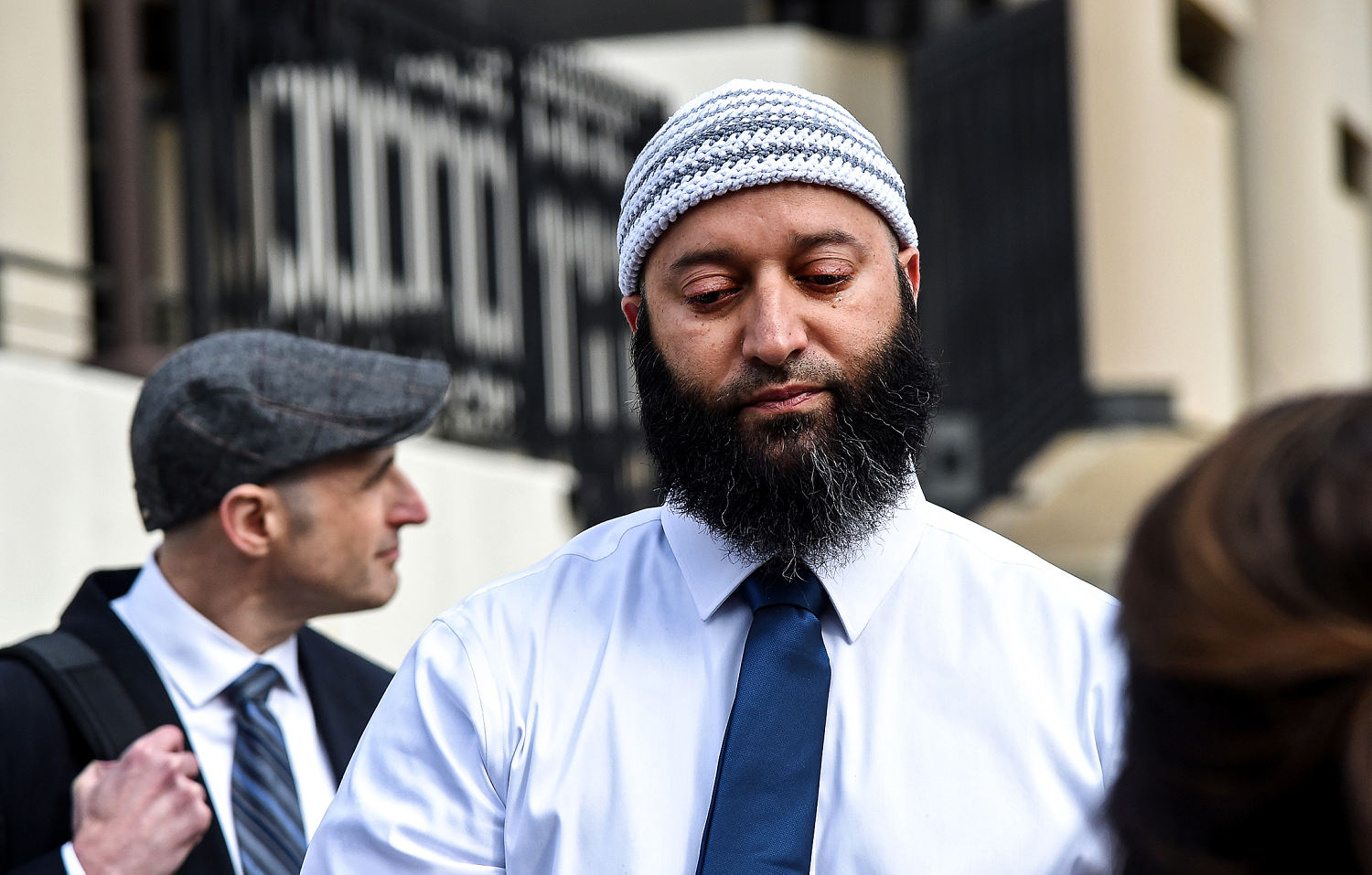
In the Adnan Syed legal saga’s latest step, Maryland’s top court kept intact the convictions of the man whose case was popularized by the “Serial” podcast that raised questions about his guilt.
The court was closely divided in Friday’s decision — with nearly 200 pages total written by the majority and dissenting justices — in the appeal that didn’t turn on Syed’s culpability but rather a victim’s rights issue that requires further proceedings in the closely watched case and has broader implications for criminal justice generally.
After being convicted in 2000 of killing Hae Min Lee, Syed’s high school ex-girlfriend, the state’s attorney for Baltimore City moved to vacate Syed’s convictions in 2022. But the problem, as the Supreme Court of Maryland saw it, is that Lee’s brother, Young Lee, wasn’t properly afforded his rights in connection with the 2022 hearing that freed Syed.
The state high court recounted:
The prosecutor gave the crime victim’s representative, Young Lee (Ms. Lee’s brother), less than one business day’s notice of an in-person hearing on the motion to vacate. As the prosecutor and the presiding judge were aware, Mr. Lee lives in California. The court denied Mr. Lee’s request for a one-week postponement of the hearing, which would have allowed Mr. Lee to attend the hearing in person in Baltimore. The requested postponement having been denied, Mr. Lee observed the hearing remotely. Mr. Syed appeared in person. The court allowed Mr. Lee to make a statement at the beginning of the hearing, prior to the presentations by the prosecutor and defense counsel. After Mr. Lee completed his remarks, the court denied Mr. Lee’s attorney’s request to be heard briefly.
The lower court granted the state’s motion to vacate Syed’s convictions after that hearing, ordering prosecutors to set a new trial or drop the charges. The state did the latter but Young Lee appealed. An intermediate appeals court said that he had a right to reasonable notice of the hearing and the right to attend in person, yet the appeals court also said that crime victims and their representatives don’t have a right to be heard at the hearing.
On Friday, the state Supreme Court agreed that Young Lee had the right to receive sufficient notice and attend in person, and it further decided that crime victims or their representatives do have the right to be heard.
While the court approved the reinstatement of Syed’s convictions, it declined to reincarcerate him.
“Because Mr. Lee’s rights as the crime victim’s representative were violated and Mr. Lee has made a sufficient showing of prejudice, this case will be remanded to the Circuit Court for Baltimore City for further proceedings,” the state high court said in the opinion by Justice Jonathan Biran, joined by three other justices over three dissents.
“On remand, the parties and Mr. Lee will begin where they were immediately after the State’s Attorney filed the motion to vacate,” Biran wrote, adding that the case needs to go to a new judge, to “avoid the appearance that allowing Mr. Lee and/or his attorney to speak to the evidence at a new vacatur hearing may be a formality.”
Though the underlying proceedings sought to remedy a perceived injustice to Syed, the state high court concluded, “the prosecutor and the circuit court worked an injustice against” Young Lee.
And while the court approved the reinstatement of Syed’s convictions, it declined to reincarcerate him.
Syed, now 43, was sentenced to life in prison, plus 30 years, for the 1999 strangling of Hae Min Lee. He served more than 20 years before his conviction was overturned in 2022 after prosecutors dropped the charges against him, citing flawed evidence.
The matter may well conclude with Syed’s vindication if Young Lee is afforded his rights as outlined by the state court. But it remains uncertain precisely how or when this legal story ends.
Striking a much different tone and raising different concerns, dissenting justices called the case “a procedural zombie” that’s been “reanimated, despite its expiration,” further arguing that the majority created victims’ rights that didn’t exist and that the “new hearing requirements harken back to the days of yore before victim-initiated prosecutions were constitutionally abolished.”
Subscribe to the Deadline: Legal Newsletter for updates and expert analysis on the top legal stories. The newsletter will return to its regular weekly schedule when the Supreme Court’s next term kicks off in October.

Leave a Reply